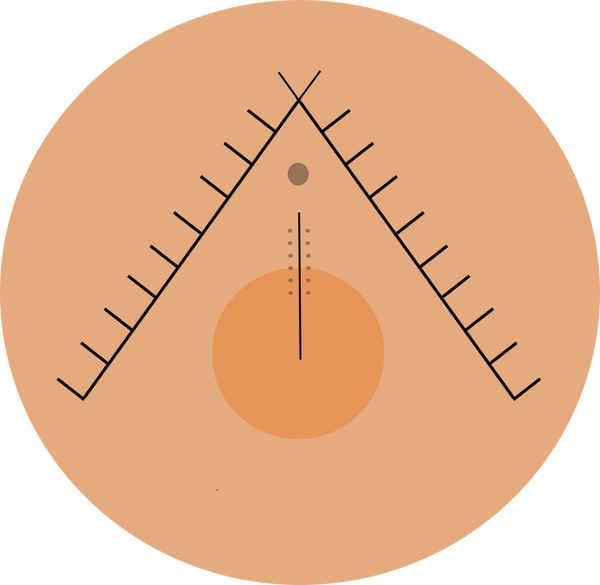
How Moroccan Rugs Elevate Maximalist Interiors with Color and Character
Share
Mix, Match, and Layer: Decorating Maximalist Spaces with Moroccan Rugs
When it comes to maximalist design, the phrase “more is more” is less of a mantra and more of a principle. In spaces where pattern, texture, and bold color reign supreme, selecting the right foundation pieces is key. Moroccan rugs—rich in history, craftsmanship, and vibrant motifs—are uniquely suited to serve as anchor pieces in maximalist interiors. Below, we explore how these rugs can transform a room with color, story, and visual balance.
The Maximalist Aesthetic: A Quick Refresher
Maximalism is less about chaos and more about curated abundance. Think saturated color palettes, layered patterns, and a confident mix of contrasting textures. Unlike minimalism, which emphasizes restraint, maximalism invites you to surround yourself with things you love—while still maintaining harmony through repetition, scale, and balance.
The risk with maximalism is visual overload. This is where Moroccan rugs come in: they offer a bold yet grounding presence that helps bring cohesion to an expansive, eclectic palette.
Why Moroccan Rugs Work Perfectly in Maximalist Spaces
A. Rich Pattern Vocabulary
Moroccan rugs, especially tribal and Berber styles, embrace geometric or abstract motifs. These striking designs provide visual anchors among other busy elements in a maximalist space, allowing the eye to rest on a deliberate, woven pattern rather than flitting between clashing elements.
Elevate your space with a bold, handwoven rug that perfectly complements the layered beauty of maximalist design:Green Wool Carpet with Abstract Berber Motifs – 9.2×5.4 ft – Surcoma
B. Deep & Layered Colorings
Traditional Moroccan rugs often pair vibrant hues with natural wool tones. These layered colors can echo accents elsewhere in the room—pillows, wall treatments, smaller décor items—tying disparate pieces together. Their color complexity allows them to play both supporting and starring roles in the design.
Infuse your home with the warmth of Moroccan color stories—each handwoven rug unites bold hues and natural tones with effortless harmony:Contemporary Moroccan Berber Rug 10.2 x 8 ft / 310 x 246 cm – Surcoma
C. Texture as Visual Weight
The tactile depth of handknotted or handwoven wool adds sculptural weight to the floor plane. In a maximalist setting, texture is just as potent as color in generating character. A thick-pile Beni Ourain or high-contrast flat-weave can command attention without adding clutter.
Add dimension and warmth with a handwoven Moroccan rug—its rich texture transforms the floor into a statement of artistry and comfort:Vintage Moroccan Boujad Carpet – Handwoven Berber Wool – Surcoma
D. Story & Authenticity
Because many Moroccan rugs are handcrafted and hold deep cultural symbolism, they bring more than just aesthetics—they bring narrative. In maximalist interiors, which often value storytelling objects, a Moroccan rug becomes a conversation piece as well as a design foundation. As one rug expert puts it, “the colourfully graphic Berber tribal carpets … tie different patterns, colours and textures together in an eclectic home.”
 Bring meaning to your décor with a handcrafted Moroccan rug that tells a story of culture, craft, and timeless artistry:Vintage Beni Mguild Moroccan Rug – Handwoven Wool Geometric Design Rug – Surcoma
Bring meaning to your décor with a handcrafted Moroccan rug that tells a story of culture, craft, and timeless artistry:Vintage Beni Mguild Moroccan Rug – Handwoven Wool Geometric Design Rug – Surcoma
E. Flexible Scale
Moroccan weavers use a varied scale of motifs—from minute lines to large diamonds—making them adaptable. In a maximalist room, you can opt for rugs with bolder, larger-scale designs if the walls are busy, or more intricate designs to contrast oversized furniture.
Strategies for Styling Moroccan Rugs in Maximal Environments
Let the Rug Lead (or Listen)
Hero Role: If your rug is deeply saturated or high-contrast, make it the focal point, and dial back competing colors somewhat.
Supporting Role: If the rug is more muted or neutral, you can layer stronger colors around it.
Layer Patterns with Intention
Maximalism is about layering—but that doesn’t mean random. When pairing your Moroccan rug with patterned upholstery, wallpaper, or textiles, aim to echo tone or scale. For example, if your rug features warm terracotta and indigo, bring those colors into accent pillows, throws, or artwork.
Use Rugs to Define Zones
In open-plan or large spaces, Moroccan rugs can act as visual boundaries. A bold rug under the sofa creates a “living zone”; another under the dining table anchors that area. The contrast in pattern helps each zone feel distinct without walls.
Contrasting Shapes & Softening Lines
Unexpected rug shapes—round, oval, organically edged—can play off rigid furniture lines, injecting softness into a room saturated with formality.
Repeat & Rebalance
One of the secrets of maximalist harmony is repetition. Pick two to three colors or motif elements from your Moroccan rug and mirror them in different parts of the room (curtains, ceramics, small decor). That echoing gives unity to abundance.
Selecting the Right Style of Moroccan Rug
Not all Moroccan rugs are the same. Here are a few types that lend themselves particularly well to maximalist spaces:
Beni Ourain (neutral background, geometric lines): Useful to offset very colorful spaces or act as a subtle canvas.
Azilal Rugs: With lively, colorful designs, they’re ideal for rooms craving extra energy.
Boucherouite Rugs: Made from recycled textiles, these are wildly multicolored and perfect for maximalist bravado.
Large-format & Oversized Rugs: Helps unify rooms with heavy wall treatments or dramatic furnishings.
Final Thoughts
In a maximalist interior, the risk is that everything competes for attention. Moroccan rug, with their brightness, depth, and cultural resonance, provide a stabilizing force—a design backbone that brings both color and coherence. Whether you let them lead the show or position them as visual companions, they elevate interiors from “busy” to “beautifully layered.”
If you’re looking for more inspiration on combining bold rugs and high-impact décor, check out Which Rugs to Add to a Maximalist Room Design.



